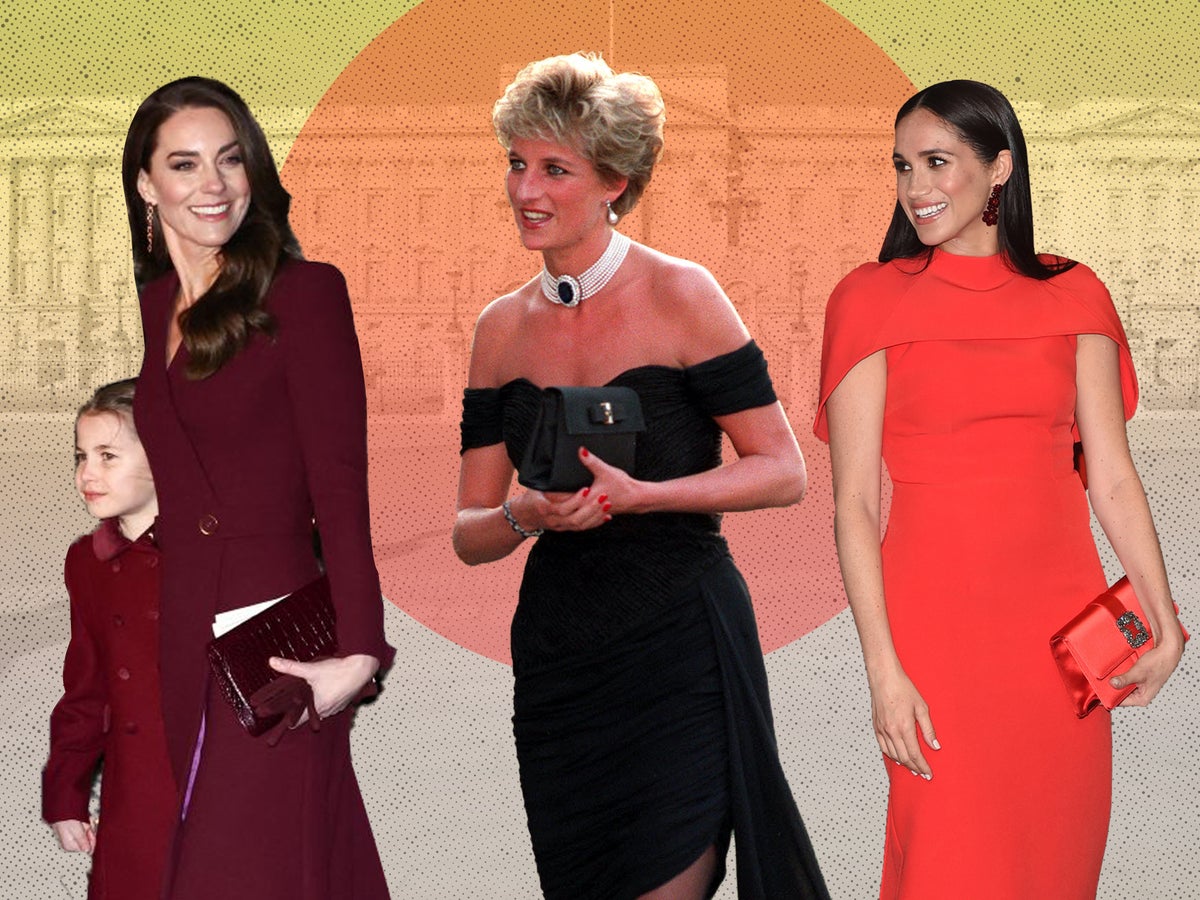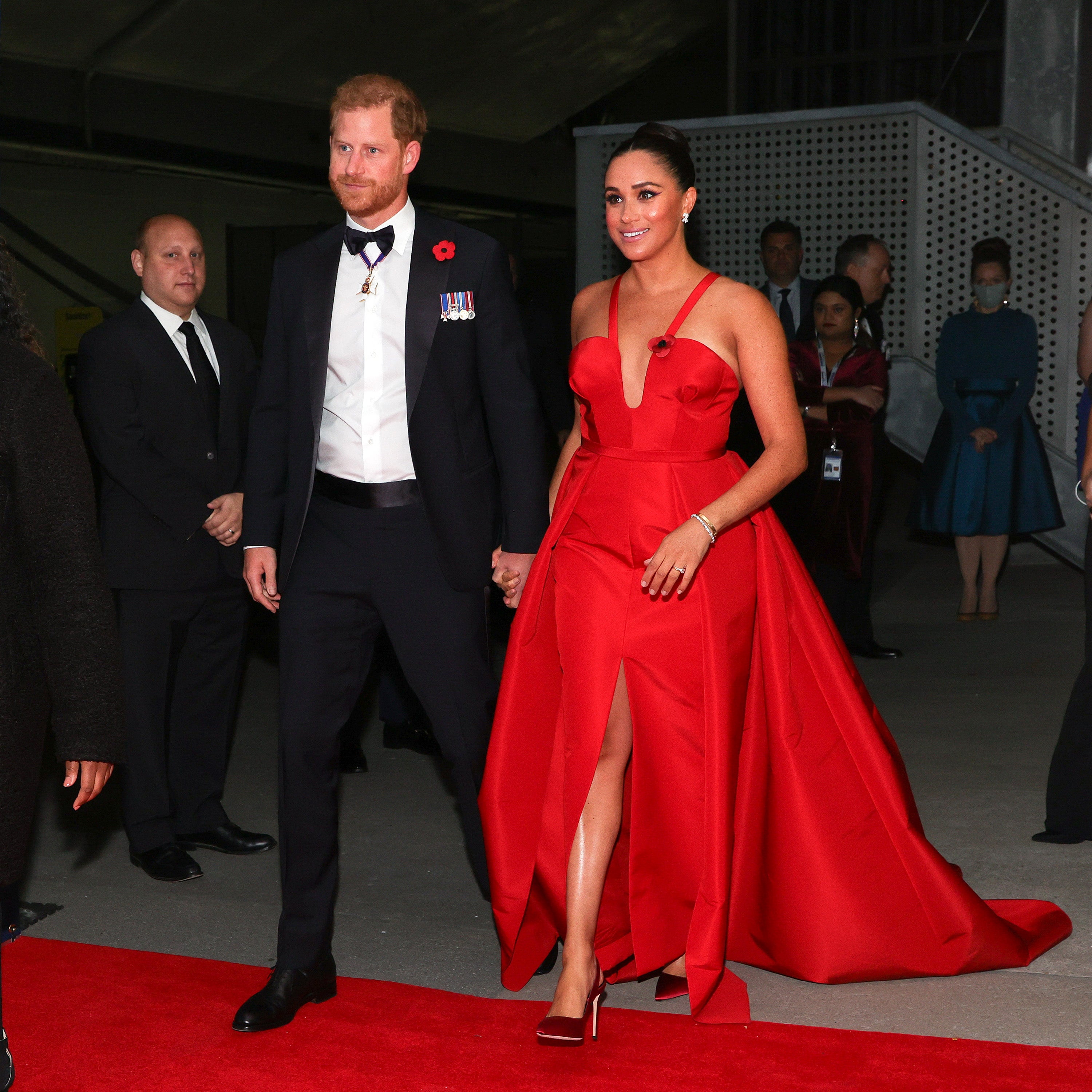
“Were you silent or were you silenced?” The clip of Oprah Winfrey asking Meghan Markle these famous words during their sensational 2021 interview may have entered the meme canon, but its meaning continues to resonate today. While reports of the royal family “in turmoil” may be exaggerated, there’s no disputing the impact felt by the release of Harry and Meghan, a six-part Netflix series aimed at telling the couples’ side of the story following their decision to step down from royal duties in 2020.
Revelations include Prince Harry recalling the “terrifying” way his brother Prince William “screamed and shouted” at him during a tense meeting in 2020; the discovery that the Queen’s office may have leaked plans for Harry and Meghan’s move to South Africa in 2019; and Meghan expressing “surprise” at the formality with which the royals conduct themselves – even behind closed doors. Amid a culture of silence and the notorious “don’t complain, don’t explain” edict apparently enforced on serving royals, the opportunity for individuals to articulate their views is limited in the extreme, driving some members of the royal family to comminicate using a sartorial message instead.
From princes to paupers, clothes have long been a vehicle for self-expression. Attempts to dismiss fashion as frivolous or superficial fail to appreciate the power and political meaning that something as simple as a garment of clothing can convey. In the absence of an available platform to share feelings – which haven’t been workshopped and whittled down by the firm’s industrious press team – the royals can convey subtle messages through their clothing.
Following the release of the latest and final instalment of Harry and Meghan on Thursday (16 December), much of which focused on allegations against the royal family, said royals put on a brave face and headed to Westminster Abbey for a festive carol concert that same evening. Kate Middleton and Princess Charlotte appeared in matching burgundy dress coats, while Zara Tindall and Kate’s younger sister, Pippa, also wore burgundy in what has been interpreted as a united show of strength. The dark red hue is believed to symbolise power and wealth, qualities that the royals will be keen to project at this time of intense scrutiny.
“The Wales family have been stepping out in colour coordinated outfits for years,” says Miranda Holder, royal fashion expert and celebrity stylist. “It provides a show of resilience and unity throughout a fairly turbulent few years, and it was for exactly these same reasons that Kate, Charlotte and Zara all wore burgundy last night at the Christmas carol concert.”
Holder emphasises that their matching outfits were not “an error of judgement” but rather a “way of communicating to the world that despite the chaos surrounding the Harry and Meghan debacle, they shall not be disrupted and are standing their ground”.
The symbolism of something as seemingly throwaway as the colour of a dress or a coat is not to be underestimated. Meghan spoke about the significance of her own fashion choices in the Netflix documentary, stating that the previous colour palette of her wardrobe was an attempt to blend in. “So I was like, ‘Well, what’s a colour that they’ll probably never wear? Camel? Beige? White?’ So I wore a lot of muted tones, but it was also so I could just blend in,” she said. “Like, I’m not trying to stand out here. So there’s no version of me joining this family and trying to not do everything I could to fit in.”
In a later episode, the Duchess of Sussex described the pleasure she took in wearing colour during her final engagements as a working royal, saying she wanted to “look like a rainbow”. Meghan said, “Until that last week in the UK, I rarely wore colour. I never wanted to upstage or ruffle any feathers. So I just tried to blend in.”
“Wearing colour ultimately makes us feel good – a concept known as ‘dopamine dressing,’” says Holder. “Different hues such as ‘zesty orange’ or ‘sunny yellow’ can lift our spirits, whereas soothing greens and blues, which evoke mother nature, are calming to our nervous system. It’s no wonder that Meghan Markle, a very outgoing and gregarious person, felt relief when she was able to ditch the muted tones of beige and grey used strategically to help her blend into the background, and embrace her ‘rainbow of colour’ once again as she takes centre stage in her own world.”
Any discussion of royal attire would be remiss without mentioning Princess Diana’s iconic “revenge dress”. The black, off-the-shoulder chiffon dress created by Greek designer Christina Stambolian featured a plunging, sweetheart neckline and a flowing black train. The late princess wore the cocktail dress to the Serpentine Gallery’s summer party in London in 1994. It was the same evening that Prince Charles publicly confessed to having an affair with Camilla Parker-Bowles in the documentary Charles: The Private Man, The Public Role, hence the name “revenge dress”.
Stambolian said that Diana had wanted to wear the dress for some time but considered it to be too risqué – until that evening and Charles’s public confession. “[The princess] chose not to play the scene like [Swan Lake’s] Odette, innocent in white,” said the designer. “She was clearly angry. She played it like Odile, in black. She wore bright red nail enamel, which we had never seen her do before. She was saying, ‘Let’s be wicked tonight!’”

Holder agrees. “Princess Diana ‘weaponised’ her style and used it to portray her feelings when she had no other way of communicating,” she says. “The infamous revenge dress was a case in point. Previously considered too daring, the dress showed that Diana was an independent, powerful woman who was not going to be overshadowed or intimidated by anyone, anymore.”
Despite attempts to modernise, the royal family continues to wax traditional in almost every aspect of life. This applies to the words they say, the words they don’t say, and the clothes they wear. It’s for this reason that speculation surrounding the royals’ fashion choices is likely to continue in abundance.







